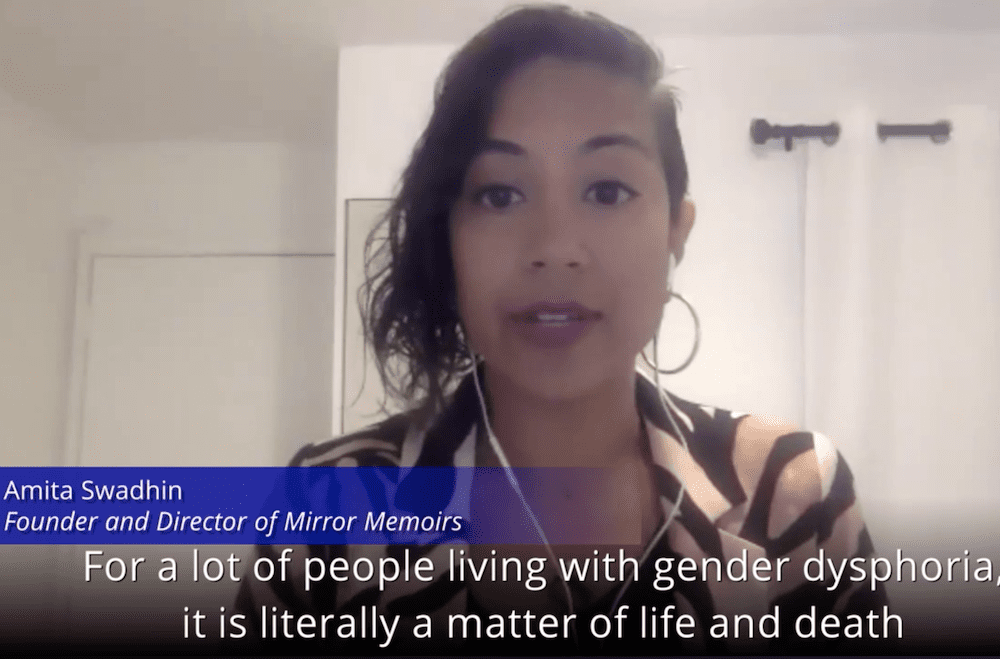When COVID Hot Takes Are All About the Victim Class

The coronavirus has exacted a terrible toll on human life. Our response, effectively shutting down all financial activity, has had a devastating impact on the livelihoods of many. The scale of the medical and economic problems the world is currently facing should have put paid to identity politics once and for all. The insidious claims that skin color, gender, and sexuality determine everything about a person should have withered away. Sadly, this is not the case. For some, the coronavirus has provided the perfect opportunity to ramp up their identity-obsessed battles.
The global pandemic reminds us of facts that, pre-coronavirus, some in the West preferred to wish away. We have been reminded that biology—our bodies—are real living organisms, not simply social constructs. Nature is not just green and pleasant—it also throws up lethal viruses. We will be depending upon scientists, not gender studies professors, to come up with a cure or a vaccine. Not everyone can work from home; right now we depend upon not just health care professionals but also shelf-stackers, farm laborers, delivery drivers, and refuse collectors. Bread-baking and crafting may be fun for a financially secure few but they won’t sustain a national economy.
There is much we still do not know about the coronavirus. But we do know that it impacts males and females differently; in every age group, almost twice as many men as women have died from COVID-19. Despite what the transgender ideologues have led us to believe, it turns out that sex is real. Chromosomes and hormones not only exist but have a real impact on our bodies.
Men may be more likely to fall ill and to die but feminist hot takes on the coronavirus are, of course, all about women. Apparently, national success in tackling the pandemic boils down to one key factor: having a female leader. Whether it’s Germany’s Angela Merkel, New Zealand’s Jacinda Ardern, or Finland’s Sanna Marin, leaders, it seems, don’t need experience or strength of character so much as they need vaginas.
Of course, we hear far more often about how the coronavirus is terrible for women, who are now burdened with extra housework, child care, and homeschooling. Having everyone at home all day, every day, certainly increases the domestic load, but there is no instruction manual dictating how this extra work should be distributed.
With more time spent at home, campaigners have warned of an increase in domestic violence. Bizarrely, in the UK, the same papers and commentators that had been most vocal in calling for the government to introduce the lockdown measures that severely curtailed women’s (and men’s) freedom were also quickest to spread panic about domestic violence. At present, reports of an increase in domestic abuse are often just anecdotal. More people seem to be calling helplines and visiting websites but this does not tell us whether there has been an increase in crime rates or greater awareness as a result of increased publicity of the services on offer.
But it’s not just women we are asked to pity. There have been warnings that transgender people are especially vulnerable as a result of the coronavirus emergency—not because they are more likely to succumb to illness than others, but because gender reassignment surgeries have been delayed and some are struggling to get hormone therapies and access counseling services.
We have also been asked to view the coronavirus through the prism of race. In the UK, black people are more than four times as likely to die from COVID-19 than white people. When age, self-reported health and disability, and other socio-demographic characteristics are taken into account, black people are still almost twice as likely as white people to die from the coronavirus. It is vitally important that we find out why this is the case. One possible explanation may be that blacks and ethnic minorities are more likely to work in front-line services that bring them into close contact with the general public. There may also be genetic explanations. We know that some diseases, such as sickle cell anemia, occur in some ethnic groups more than others.
But the emerging identity-driven narrative rules out any serious investigations. Instead it offers only one simple and pre-determined explanation: racism. Zubaida Haque, the deputy director of a UK race equality think tank, argues, “We cannot ignore how important racial discrimination and racial inequalities, for example, in housing, are, even among poorer socio-economic groups.” The British author Afua Hirsch decries “a colonial mindset” that she finds “at work in much of the coronavirus response.”
The UK government has launched an inquiry into racial disparities in coronavirus deaths. But leading commentators have already warned the committee not to “overplay cultural and genetic factors, and claim this explains the ethnic variance in death rates.” These people have decided that an inquiry is unnecessary: they already seem to know that racist intensive care doctors are providing second-rate treatment to black patients. How insulting.
From the very start of the pandemic, far too many politicians, media commentators, and celebrities found not a medical emergency but an opportunity to promote their view of the world. And there are certainly criticisms to be made over how most countries have responded to the pandemic. But at this point in time, partisan, identity-driven point scoring is irrelevant. Far worse, it could be detrimental to the search for a cure or a vaccine.
Joanna Williams in the director of the UK based think tank Cieo.
Comments